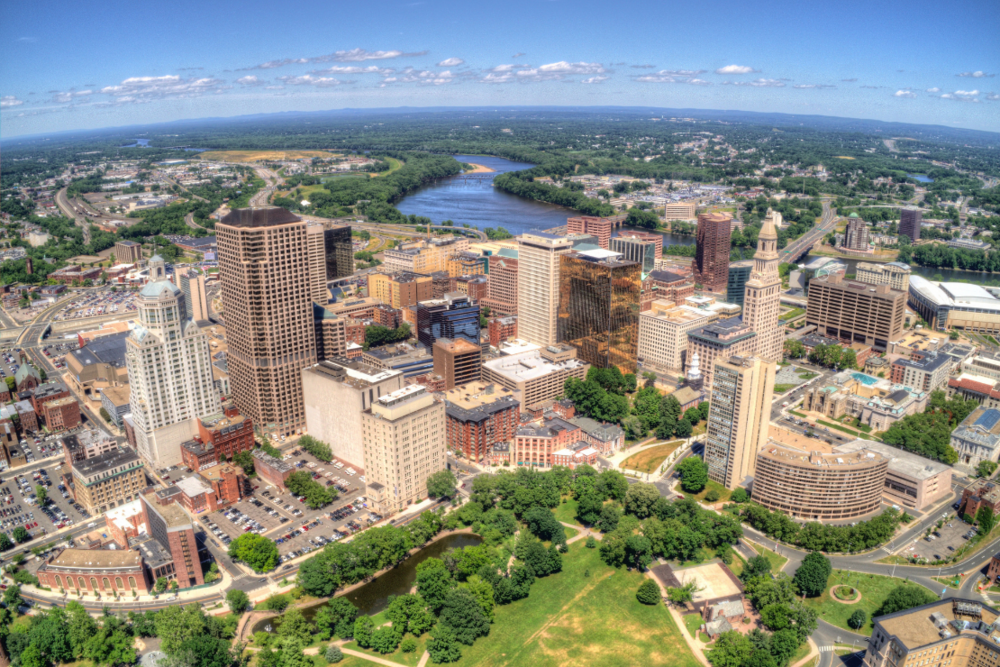Why Smaller Cities Can Be the Perfect Place for A Growing Company
Oct 08, 2020
![Launc[H]artford billboard](https://cdn.brandfolder.io/CBWQP80B/as/qtk78k74b92frcv989w9spwg/1110x740LauncHartford-billboard.auto?width=1000)
Too often, entrepreneurs think they need to move to a major startup hub like Silicon Valley or New York for their company to succeed. But smaller cities have a lot to offer startups as well. Michelle Cote — Director of Launc[H] and Director, Strategic Partnerships at Connecticut Center for Entrepreneurship & Innovation (CCEI) at the University of Connecticut School of Business — lays out the advantages that a smaller city, like Hartford, bring to entrepreneurs.
What do you need to start or grow a new company?
For many founders, the list of essentials when considering an ideal location includes access to talent, capital, customers, and industry expertise. Proximity and density of other startups, expert business support services, and a quality of life that helps to balance the grind of turning opportunity into revenue are a huge bonus as well.
That’s why many entrepreneurs assume they need to relocate to big cities or established startup hubs to find all of these things. But just like many of the other assumptions that founders make when launching a business, the need to “go big” when choosing your new venture’s address isn’t always the right move.
Give Second Cities a Second Look
As Director of Launc[H]artford, I’m often asked about our community’s size and location — especially by people who are trying to grow their businesses. Many emerging and scaling entrepreneurs can find lots of reasons to love Hartford. We are a tight-knit community that is full of expertise — particularly if you’re growing a business in the field of insurance or financial services, healthcare, or advanced manufacturing. We have a number of top-tier educational institutions brimming with eager young talent in the area. Our region is full of unique arts, cultural, and recreational opportunities. And we’re within a two hour drive of several celebrated mountain, shoreline, or metropolitan getaways.

Beautiful Hartford — a terrific place to start and grow your company
Alongside all of these great amenities, many of the entrepreneurs that I speak to are worried that they’ll miss out on something crucial to their venture’s success if they don’t move to one of the bigger cities that Hartford is sandwiched between.
To alleviate their fears, I often point out quite a few things that surprise them about Hartford specifically. But these insights hold true for many other smaller cities as well.
5 Advantages For Entrepreneurs Of the Smaller City
01. Smaller cities allow innovators to develop and penetrate social and business networks quickly
The startup community in a smaller city is often better connected than in larger, more dispersed places. You can easily meet everyone you want to meet. People tend to know each other socially as well as professionally, and someone you know is likely to be connected to the next person you want to meet. Access to decision makers is also often much easier, in small, highly-connected places.
02. Smaller cities create more obvious centers of density
When a community is small to begin with, density is easier to achieve. Often, resources relevant for entrepreneurs concentrate within a few blocks, making meetings with multiple stakeholders possible in a single afternoon. This leads to efficiencies of time and connections that may take twice as long to navigate in a bigger place.
03. Smaller cities are more affordable
Both cost of living and cost of office space in smaller cities are often one-half to one-third the cost of equivalent amenities in larger markets. You can afford a bigger, nicer space. Or you can stretch your hard-earned resources: give yourself a longer runway between funding rounds or build a product that requires a certain level of sophistication before sales are possible. These lower fixed costs let you do more with less.
04. Smaller cities allow innovators to be more visible
Startups stand out in smaller places, precisely because what they do is different. The fresh approach and the guts that it takes to chart a new path often create curiosity in the larger community — and interest from local media. Word of mouth, along with a few well-placed media spots, can make it easier for startups in a smaller city to become known more quickly.
05. Smaller cities make it easier to focus
We all know how difficult it can be to weather “mentor whiplash” or “opportunity overload” as a growing company. Smaller communities allow founders to concentrate on the things that are real and tangible right in front of them, filter out the noise that crashes through flashier markets, and do the important work of making progress against milestones and developing traction with a concentrated set of customers.
Is a Small City Right For Your Startup?
Granted, sometimes it is harder for entrepreneurs to find the innovation community in smaller cities. Many small cities also struggle to gain visibility compared to the magnetic draw of the larger, more established locations. But, many small cities, like Hartford, want startups to succeed, and are working hard to provide the resources entrepreneurs need.
In just the last three years, Hartford has emerged as a vibrant hub of innovation and entrepreneurship, thanks to the commitment and vision of a tightly-knit group of co-investors. In many ways, the value that Hartford offers to its entrepreneurs exists precisely because of its size.
So how can you tell if your hometown or a small city near you is the right place for your company to establish some roots?
01. Start with a google search; but prepare to engage with human beings early
Look for the local co-working or makerspace, or find a startup that feels like they might be at the same stage or in a similar field, and reach out and introduce yourself. Emails and LinkedIn messages work great for this purpose. Entrepreneurs are busy people, so it might take a couple of tries, but they also love to help others with shared passions.
If all else fails, you can always show up at an event and introduce yourself. Stay persistent, let people know you want to get involved in the startup community, and there will be people who will be eager to help.
02. Ask your connections, “Who else should I try to meet here?”
The best communities for entrepreneurs are full of connectors, and smaller cities are no exception. In fact, a growing startup scene needs these connectors to help it thrive. You can benefit from these connections — and become an important connector yourself.
Ask your existing connections to recommend others, or request introductions to people who are experts on the resources that you need (see below). If you ask and your contact finds that nothing immediate comes to mind, follow up after they’ve had some time to think. If a connection proves particularly valuable, go back and let the person who introduced you know. People are motivated by positive results, and this may prompt them to try to be even more helpful.
03. If there is a certain type of asset, resource, or decision maker that would be valuable to you, don’t be afraid to ask for it directly
Smaller communities often mean stronger connections, but they may not be obvious to the newcomer. If you’re in a place where startups aren’t a large part of the local economy, it may be more difficult for the local network to anticipate your needs. So if you’re looking for a certain skill set or resource, be specific about the type of help that you require.
For example, if you need an accountant who specializes in preparing companies for investment, ask for that rather than for general accounting referrals. You’ll get fewer recommendations, but much better fit.
04. Ask people if they know each other
One of the best things about smaller communities is that just about everyone is connected by less than two degrees of separation. As a startup, you’re probably trying to get a feel for the people with specific skills you need, those you can count on to help in a crisis, potential conflicts of interest, and other either helpful or tricky relationships.
The best thing to do, especially in a smaller city, is to simply ask if someone knows someone else that you may already be talking to – especially if they are in the same field. You can do so impartially, by saying, “You know, [what you just said] reminded me of a conversation that I was recently having with [insert name]. Do you know her?” And, then wait to see how the person that you’re talking to responds. Both what they say, and how they say it, will speak volumes.
Love the Place You Live
In the end, I find that where you are doesn’t make nearly as much difference as how you feel about where you are. After all, being successful as an entrepreneur requires understanding the environment around you, and creating new value within it. So no matter where you choose to establish yourself and your business, understand that your experience, and the way that you feel about it, has as much to do with you as with everyone else around you.
I hope you choose Hartford — or perhaps another smaller city closer to you — as the place that you decide to create new value. But, if not, and you have your heart set on a larger metro, that’s great too. Just know that you have options, and many many places that would love to have you call them home.
Want to learn more about what Hartford has to offer? Register now to attend Startup Week Hartford, with five days of free events and webinars on October 19-23, 2020.
About the Author

Michelle Cote
Michelle Cote is Director of Launc[H], Hartford’s innovation ecosystem, and Instructor and Director, Strategic Partnerships, at Connecticut Center for Entrepreneurship & Innovation (CCEI), which is part of the University of Connecticut School of Business. Through Launc[H], Michelle leads the design and development of initiatives that help to make Hartford a hub of entrepreneurship and innovation and provide entrepreneurs with connectivity to resources across the Hartford region.

